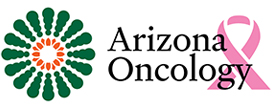Chances are you or someone you know has a close relative or friend that has been impacted by breast cancer and they may even be receiving breast cancer treatment at one of our clinics. Busting these common myths about breast cancer can help you be informed about what’s real when it comes to this disease.
Breast Cancer Myth 1: Breast cancer only occurs in women.
Though it is true more women are affected by breast cancer, it still can and does occur in men. According to the National Breast Cancer Foundation, over 2,800 men are diagnosed annually with breast cancer. It is important that a man who notices any changes in male breast tissue, including a hard lump underneath the areola or nipple, immediately follow up with his primary care physician.
Breast Cancer Myth 2: A lump in the breast is always cancer.
There are actually many potential causes of a lump in the breast, most of which are not breast cancer. These include the natural changes that occur with aging or any sort of trauma, such as a physical blow, that happened while you were younger. However, it is still important to follow up with your physician if you do notice a lump or change in breast tissue. Being proactive is the best way to detect cancer early, so if it is the reason for your lump, you can be referred to a breast cancer specialist as soon as possible.
Breast Cancer Myth 3: Most breast cancer is genetic.
Only 5 to 10% of breast cancers are thought to result from genetics.It’s not scientifically clear why some women develop breast cancer who are at low risk while some who are at high risk do not. But we do know that most breast cancers are not caused by a hereditary factor. According to the National Breast Cancer Foundation, only 5 to 10% of breast cancers are thought to result from genetics.
There are some risk factors that, if controlled, can reduce the risk of developing breast cancer. This can be done by maintaining a healthy weight, not smoking and keeping daily alcohol consumption to a minimum.
Breast Cancer Myth 4: Breast cancer is contagious.
Very few cancers arise from contagious factors, such as the HPV virus, and breast cancer is not one of them. Breast cancer is the result of cells that have mutated and are growing uncontrollably in breast tissue. It is not contagious and cannot be spread to another person by physical contact, saliva, or any other physical means.
Breast Cancer Myth 5: Deodorant and antiperspirants cause breast cancer.
The National Cancer Institute states that there is no conclusive evidence to show a link between antiperspirant or deodorant use and the development of breast cancer. This means they have reviewed studies that have claimed there is a link and decided there was no sufficient evidence and have also reviewed studies that have failed to demonstrate any link between the two.
Related reading: 12 Common Myths About Cancer
Breast Cancer Myth 6: Mammograms can make breast cancer spread.
Some people believe mammograms will cause breast cancer to spread because of the radiation or from the physical compression of the tumor. Neither of these things is true. In fact, mammograms are one of the reasons that deaths from breast cancer have declined, thanks to their ability to detect breast cancer in its early stages when it is more treatable. The patient can be referred to a breast cancer doctor quickly for treatment. While mammograms do deliver a small amount of radiation, the benefit of annual mammograms in women after age 40 outweighs the potential risks. If you still have concerns regarding mammogram screening, be sure to discuss them with your physician, who can help explain why he or she feels mammograms are appropriate for you.
Knowledge Equals Awareness
It’s great that you have taken the time to read about some common breast cancer myths and clear up any misconceptions about breast cancer that you may have had. Many people have heard these myths and have no reason to believe otherwise.
Originally posted in 2018, updated in 2024.



